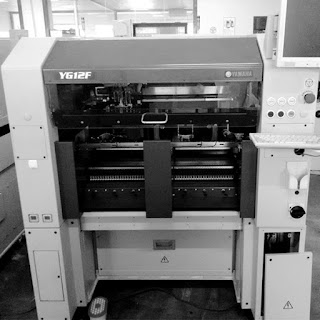The following steps will help you identify your minimum equipment requirements based on the job(s) you
will be running.
1. What parts do you need?
For this step, you’ll need your bill of materials (BOM) for each product you’ll be assembling on the
pick and place machine. Your BOM provides information critical to helping you calculate placement rate
requirement, feeder type and number requirements, and the component placement capabilities your new
machine will need to have.
Take a look at your BOM to find the following four items:
Total placements on the PCB. You’ll need this in step four.
Component package sizes. In step two, you’ll use this to information to identify the feeder sizes,

types and slots you’ll require.
Total amount of unique components. Each component type will require its own feeder. The number of unique
components will give you an idea of how many feeders your job will require—and will help you determine
the feeder slots you’ll need available on a machine, in step two.
Largest component, smallest component and fine pitch requirement.
While you’re there, are there any special components your machine will need to have capabilities for?
If you have more than one product to spec, you should create a spreadsheet for this step that tells you
all of the above information for each product. Make a master list of component types that are used
throughout all of your products so that you know the total amount of unique components for your
workload.
2. What feeders will you need?
Using the component package sizes from the BOM, mark down how each package will be delivered: tape?
stick or tube? waffle or matrix tray?
If components are delivered on tape, what is the tape width? Make a note of how many tape feeders
you’ll need of each width.
How many stick/tubes will you have?
How many waffle/matrix trays?
You’ll use this information to determine how many feeder slots you’ll need available on your machine,
based on how many feeder slots the manufacturer says each feeder type will use up.
3. How much board room do you need?
This one is easy. For each product, note the board or panel dimensions: length, width and thickness. You’ll
need to know the minimum and maximum board area your job(s) requires.
4. What kind of speed do you need?
To determine your throughput requirement in components per hour (CPH), first figure out how many boards
you will need to produce per hour while your line is running. Now check your BOM to see how many
placements your boards will require. (If you will be doing multiple products, use the board that has the
highest number of placements.) Multiple these two numbers together to get your minimum speed requirement
(CPH).



No comments:
Post a Comment